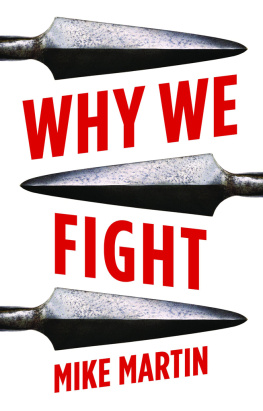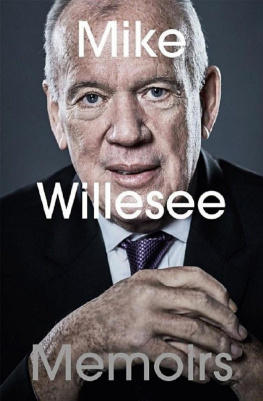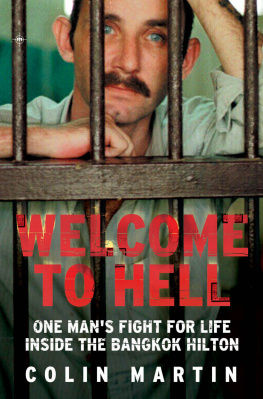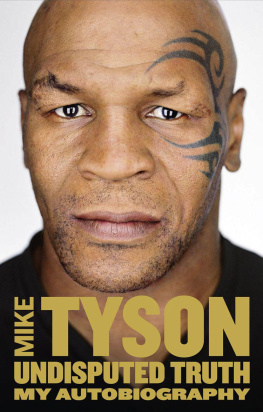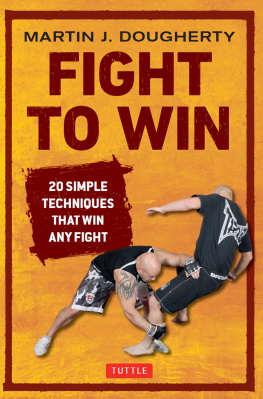Mike Martin - Why We Fight
Here you can read online Mike Martin - Why We Fight full text of the book (entire story) in english for free. Download pdf and epub, get meaning, cover and reviews about this ebook. year: 2018, publisher: Hurst, genre: Romance novel. Description of the work, (preface) as well as reviews are available. Best literature library LitArk.com created for fans of good reading and offers a wide selection of genres:
Romance novel
Science fiction
Adventure
Detective
Science
History
Home and family
Prose
Art
Politics
Computer
Non-fiction
Religion
Business
Children
Humor
Choose a favorite category and find really read worthwhile books. Enjoy immersion in the world of imagination, feel the emotions of the characters or learn something new for yourself, make an fascinating discovery.
- Book:Why We Fight
- Author:
- Publisher:Hurst
- Genre:
- Year:2018
- Rating:5 / 5
- Favourites:Add to favourites
- Your mark:
- 100
- 1
- 2
- 3
- 4
- 5
Why We Fight: summary, description and annotation
We offer to read an annotation, description, summary or preface (depends on what the author of the book "Why We Fight" wrote himself). If you haven't found the necessary information about the book — write in the comments, we will try to find it.
Why We Fight — read online for free the complete book (whole text) full work
Below is the text of the book, divided by pages. System saving the place of the last page read, allows you to conveniently read the book "Why We Fight" online for free, without having to search again every time where you left off. Put a bookmark, and you can go to the page where you finished reading at any time.
Font size:
Interval:
Bookmark:

WHY WE FIGHT

First published in the United Kingdom in 2018 by
C. Hurst & Co. (Publishers) Ltd.,
41 Great Russell Street, London, WC1B 3PL
Mike Martin, 2018
All rights reserved.
Printed in the United Kingdom
The right of Mike Martin to be identified as the author of this publication is asserted by him in accordance with the Copyright, Designs and Patents Act, 1988.
A Cataloguing-in-Publication data record for this book is available from the British Library.
ISBN: 9781787380370
www.hurstpublishers.com
To the wars we are about to fight
I wrote Why We Fight because I found that my experiences as a British soldier in Afghanistan, and as a conflict scholar thereafter, were unsatisfyingly discordant. The lived experience is, by definition, an individual experiencewhereas conflict scholarship, and the wider social sciences, seek to understand phenomena on larger scales. Why We Fight attempts to integrate these two views using the incredible advances that have been made in the cognitive sciences over the last thirty years.
This discordance between the experienced versus the studied extends to the media and to politicians when they talk about conflict and other forms of violence. Thus, terrorism is caused by an ideology that radicalises young people and causes them to blow themselves up. Consequently, the British governments approach to stopping people from becoming terrorists or supporting terrorism, known as Prevent, contends that confronting the extremist ideology is the strategys centrepiece. But how can an idea cause someone to blow themselves up? This is puzzling from a biological and cognitive point of view, because killing yourself, especially before you have children, is the ultimate anti-evolutionary actthe ultimate reduction in fitness.
This had been the case in Afghanistan, where actual firefights were explained, and written about, in ideological terms: the battle was to save a village from the Talibans religious extremism, for example. But I knew full well that these particular clashes were about a decades-old feud that had been touched off by personal slander or disrespectin some cases, I fought in the firefights and then later interviewed combatants on both sides. It left me with a feeling that historians in half a millenniums time were not going to understand what caused the conflict in Afghanistan, or what drove people to fight in it. Are we guilty today of misreading Europes sixteenth-century Wars of Religion?
Why We Fight began to germinate shortly after the Islamic State attacked the Bataclan theatre and other targets in Paris in November 2015. In an email chain with my publisher Michael Dwyer we lamented the victims, and discussed how the French government and European politicians had responded to this terrorist atrocity and others. Themes appeared and reappeared: in-group solidarity in the face of the attacks, a desire for revenge even when it was unclear upon whom it should be visited, and a strong focus on ideology as the main explanatory factor behind such actions.
Debating these themes left me unsatisfied. How could ideology cause violence? How could an idea cause someone to deprive themselves of their own life? What was the link between the two? Inevitably, the broader questions around what precipitated violence and war also surfaced: why do we fight? Each question I answered seemed only to lead to another series of questions, all of which began with why.
Eventually, passing through ideology, religion, morals, tribalism, and emotions, I ended up where it all began: with human beings. More specifically, the human brain and how it evolved. After all, nothing in biology makes sense except in the light of evolution;
Writing this book has brought together several themes and phases in my life: wanting to soldier since childhood, and then soldiering; studying biology, and then scrutinising conflict at a doctoral level; and a later career working and travelling in different cultures, always exploring politics and conflict. Even the immediate context to my writing of the bookas chief operating officer of Common Purpose, a global leadership development organisation that aims to help people become leaders across, rather than of, groupshas played a role in the books evolution.
* * *
My first thanks go to Michael Dwyer at Hurst for nurturing the ideas behind Why We Fight, and for taking a risk in commissioning the book before my ideas were fully formed. I would also like to thank Lara Weisweiller-Wu and Alison Alexanian, for brilliant editing and publicity, respectively, and to Daisy Leitch for pulling it all together..
Furthermore, this book could not have been written without support from Kings College London and Professor Theo Farrell, a long-term mentor and former head of the world-class War Studies Department where I am a visiting fellow. Beyond this, Why We Fight is a timely and welcome return to biology, my first intellectual home. Thus, for my early intellectual development (and for not giving up on me when others would have), I am incredibly grateful to my tutors at the University of Oxford: Mark Fricker and Alex Kacelnik. My unceasing amazement at the elegance of science is due to you.
I wish also to thank dearly a procession of long-suffering friends and family who have offered shrewd comments on earlier drafts: Chris Ankersen, Alex Barnes, Jamie Bryan, Josh Bryan, Eddy Canfor-Dumas, Hassan Damluji, Tom Dougherty, Theo Farrell, David Fisher, Phil Hyett, James Ivory, Frank Ledwidge, Mark Linder, Peter Martin, Mike Niconchuk, Dale Pearson, and Tom Rodwell. This book would not be what it is without all of your kind, patient, yet well-honed advice. My thanks also to the anonymous peer reviewers. Naturally, any omissions are mine. Finally, the arguments in Why We Fight are my own personal views and do not represent any of the organisations with which I am affiliated.
But most of all, I would like to thank Sasha. Living with an author is not easy, with long periods spent in front of the computer, and moods fluctuating accordingly. Why We Fight, a translation of a gut feeling into an intellectual argument, has been an emotional journey for both of us. Thank you for supporting me every day: this book is as much yours as mine.
There is no instance of a nation benefitting from prolonged warfare
Sun Tzu
Humans fight to achieve status and belonging. They do so because, in evolutionary terms, these are the surest routes to survival and increased reproduction. Statuswhich denotes our hierarchical position compared to othershelps humans to find sexual partners of a higher quality, to attain resources, and to control others. And so we fight over it. As for belonging, in order to protect ourselves against violence inflicted by others, humans build bigger and bigger social groups, which, on the whole, are more secure and less prone to internal aggression. The evolutionary benefits of group living are such that we all seek to belong to these in-groups. Lastly, men and women improve social cohesion and solve the problems thrown up by group living by using moral codes, religions and ideologies.
Both of these motivating desirestowards status and belongingare subconscious, heuristic drives. Heuristics are rough rules of thumb that, more often than not, give the right evolutionary answer. Thus, on average, humans with a higher status, and who belong to a solid in-group, will have more surviving children and grandchildren. Biologists call this increased fitness. Averages, of course, hide the fact that on many occasions, for individual human beings, the pursuit of status and belonging reduces fitness. It might not work out for you, but it will work out for most that try ithence these drives, and the genes that underpin them, remain in the gene pool. Finally, there is an interaction between the behaviours of leaders and followers that enables them to help fulfil each others drives for status and belonging respectively.
Font size:
Interval:
Bookmark:
Similar books «Why We Fight»
Look at similar books to Why We Fight. We have selected literature similar in name and meaning in the hope of providing readers with more options to find new, interesting, not yet read works.
Discussion, reviews of the book Why We Fight and just readers' own opinions. Leave your comments, write what you think about the work, its meaning or the main characters. Specify what exactly you liked and what you didn't like, and why you think so.

